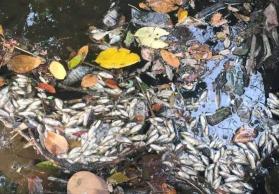International and Faith-Based Organizations Express Grave Concerns about Upcoming Elections in El Salvador
FOR IMMEDIATE RELEASE
February 02, 2024
Media Contact
Manuel Guzmán, [email protected]
Alexis Stoumbelis, [email protected]
The Committee in Solidarity with the People of El Salvador (CISPES), the Hope Border Institute, and the Latin America Working Group (LAWG) express their grave concerns ahead of the executive, legislative, municipal, and Central American Parliament elections in El Salvador next February 4th and March 3rd, 2024.
The upcoming elections will determine whether El Salvador will transition from a pluralistic democracy to a one-party rule system. Elections will happen in a context of democratic reversals in the country, including the undermining of the rule and constitutional separation of powers by President Bukele and his supermajority in Congress, repression against political opponents and environmental and social leaders, widespread human rights and due process violations under a State of Exception that has become the norm, and the undermining of checks and balances at the municipal, judicial and legislative levels.
Against this background, we express six grave concerns that question the fairness, transparency and free nature of these elections:
1. First, and most noticeable, is the candidacy of President Bukele, running on a dubious Constitutional Chamber ruling that reversed decade-long jurisprudence to interpret Salvadoran Constitution articles prohibiting president re-election in favor of Mr. Bukele.
2. Second, concerns about the independence of the Supreme Electoral Tribunal (TSE, for its acronym in Spanish) and its ability to exercise effective control over the elections and certify credible results, whether due to members’ loyalty to the ruling party or threats and intimidation they may face.
3. Third, a series of rapid-fire reforms by the Legislative Assembly that include the reduction of seats, a change in the electoral formula to determine winners, and the reduction of the country’s municipalities in the last year anticipate the elimination of political pluralism in the political system, further entrenching dominant party control.
4. Fourth, the new electronic system to vote abroad, which, while rightly increasing access to voting for Salvadorans in the diaspora, may not contain the necessary verification systems to check who is voting or to ensure that every voter may cast only one ballot, has allowed widespread voting during the electoral campaign, and will disproportionately direct legislative votes to the San Salvador races, in disservice of opposition parties.
5. Fifth, the collusion between public institutions and the New Ideas party, as well as the government's unwillingness to make funds available to opposition parties for campaigns, raises concerns regarding fairness during the campaign.
6. Finally, the suspension of constitutional rights and the environment of fear and persecution that has been created through intense militarization of society raises key questions as to whether Salvadorans feel they can freely cast their vote; suffrage will also be denied to the more than 60,000 Salvadorans who have been incarcerated without trial under the State of Exception.
President Bukele’s populist approach, burnished by improved perceptions of security founded on a massive crackdown on human rights, has shielded him from international scrutiny. Yet this cannot justify an assault on the right of the people of El Salvador to free and fair elections.
We call for international observation missions to particularly pay attention to participation levels in areas highly impacted by state-of-exception policies, as well as for the U.S., the European Union and other international actors to recalibrate their approach toward the country, acknowledging the popular will while recognizing the pre-conditions that have put these elections into question.
We continue to call on the international community to listen and accompany civil society and faith actors in the country working to strengthen democracy, ensure respect for human rights and address the underlying conditions of exclusion that lead many to migrate.
###
The Hope Border Institute (HOPE) brings the perspective of Catholic social teaching to bear on the realities unique to our US-Mexico border region. Through a robust program of research and policy work, leadership development and action, we work to build justice and deepen solidarity across the borderlands. Learn more at www.hopeborder.org.
Founded in 1980 to call for an end to U.S. support to the Salvadoran military regime, the Committee is Solidarity with the People of El Salvador (CISPES) is a national, grassroots organization that accompanies the Salvadoran popular movement in its struggle for participatory democracy and social and economic justice. www.cispes.org
The Latin America Working Group (LAWG) mobilizes concerned citizens, organizations, and networks to call for just U.S. policies towards Latin America and the Caribbean. We educate the public about the impact of U.S. foreign and immigration policy and advocate before the U.S. Congress and the executive branch. We work closely with civil society partners in Latin America to support their human rights campaigns and make sure their voices are heard in the policy debates that take place in Washington, D.C. but shape the lives of millions throughout the region.

 "I am a CISPES supporter because continuing to fight for social justice and a more people-centered country means continuing the dream and sacrifice of thousands of my fellow Salvadorans who died for that vision.” - Padre Carlos, New York City
"I am a CISPES supporter because continuing to fight for social justice and a more people-centered country means continuing the dream and sacrifice of thousands of my fellow Salvadorans who died for that vision.” - Padre Carlos, New York City

